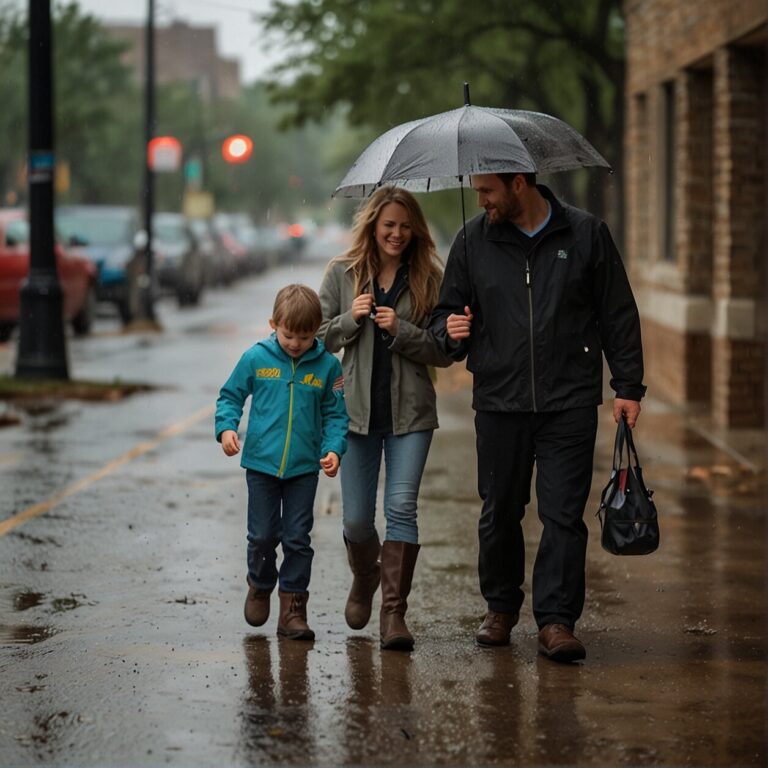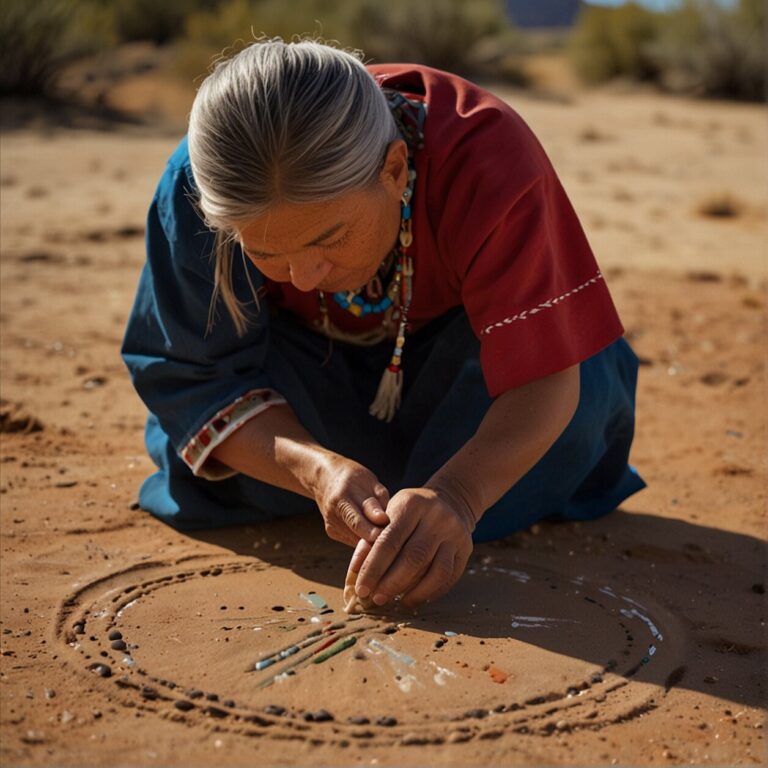Voluntourism: Helping or Harming?
Embarking on a journey of true purpose, contributing to communities in need, and immersing yourself in foreign cultures sounds like a dream come true, doesn’t it? This unique blend of altruism and adventurism is best captured by the increasingly popular concept of ‘voluntourism’. But like any venture involving people and places vastly different from our own, it’s not something to be taken lightly. While the benefits are many, it’s crucial to navigate the landscape responsibly.
“Voluntourism is more than just a fancy vacation. It’s about making a sincere impact, fostering genuine connections, and learning about other cultures and places along the way. But remember, it’s equally important to ensure that your good intentions translate into good impact.”
So, you might be asking, ‘What are the pros and cons? How do I, as a potential voluntourist, approach this ethically and responsibly?’ Don’t worry, we’re going to delve into all the nuances of voluntourism. Get ready to discover how you can truly make a difference, without the risk of inadvertently causing harm.
Understanding Voluntourism: The Role of Cultural Sensitivity
As a voluntourist, your interaction with the new environment and communities is crucial. Think of it as a dialogue where both parties, you and the community, are communicating with each other. But in this dialogue, verbal communication is just the tip of the iceberg. Underneath it is the vast field of non-verbal cues that get exchanged, and this is where cultural sensitivity comes into play.
So what exactly is cultural sensitivity? In a nutshell, it’s about being aware of the cultural differences that may exist between you and the host community, and respecting those differences. This isn’t limited to norms and customs, but extends to values, belief systems, and worldviews as well.
Now, you might be wondering why such sensitivity is necessary in undertaking voluntourism. Well, if not undertaken with awareness and respect for the local cultural context, your well-intentioned voluntourist efforts can inadvertently lead to misunderstanding, resentment, or even harm.
For instance, a project that seems perfectly logical and effective in theory could fail in practice because it does not align with the cultural norms or values of the community. As such, it’s essential to not only understand but respect these cultural nuances when participating in voluntourist activities. Only then can you create meaningful, positive change without causing unintended negative consequences.
Remember, the purpose of voluntourism is not just to help others. It’s also about fostering intercultural understanding and empathy. Being culturally sensitive helps you achieve both these goals. It allows you to build stronger, more respectful relationships with the local community, and learn valuable lessons that you can carry with you long after your voluntourism trip is over.
The Heart of Voluntourism: Intentions versus Outcomes
Voluntourism often begins with the noblest of intentions: wanting to help those in need, to contribute positively to a community, or simply to create a real impact in the world. But as it turns out, good intentions aren’t always enough. Understanding this difference between intentions and outcomes can become a pivotal point in your voluntourism journey.
Why so? Because intentions deal with what you hope or plan to achieve, whereas outcomes refer to what you actually accomplish. They can go hand-in-hand, but they might also diverge greatly. You might intend to help a community by building houses, only to find later that your actions may have unintentionally led to a dependence on foreign aid or to the undermining of local construction businesses.
Consider this carefully: What if your intention to help ends up causing more harm than good? Being aware of the potential disconnect between your intentions and outcomes can help you approach voluntourism in a way that’s not just well-intentioned, but also well-informed and well-implemented.
Navigating this gap begins with asking the tough questions. Are your skills and intent beneficial to the community? Is your voluntourism trip contributing positively and sustainably? These are just some examples to get your mental gears turning.
In conclusion, if done correctly, voluntourism can serve as a powerful tool for positive change. Start by aligning your intentions with informed and responsible actions. Strive to focus on long-term impacts over short-term feel-good moments. And finally, remember – the end goal is to support communities in ways that empower and uplift them, rather than create dependencies or local job displacement.

Transforming Good Intentions into Good Practice: Ethical Guidelines for Voluntourism
So, you’re excited about the concept of voluntourism, and you’re ready to translate those good intentions into good practice. But how exactly do you go about it ethically and responsibly?
First and foremost, recognize that altruism isn’t enough, it’s equally important to demonstrate a commitment to comprehensive research and effective action. You need to ask the right questions, delve into the nitty-gritty, and make sure that your voluntourism effort doesn’t become unintentionally harmful. Remember, any responsible tourism endeavor requires forethought, context, and respect for the communities you will interact with.
Bearing that in mind, here are some essential ethical guidelines to follow:
- Research on the organization: Before you embark on your journey, dig deep into the organization you plan on volunteering with. Look into their ethos, mission, transparency, history, and their reputation amongst local communities and past volunteers. You must ensure that your selected organization prioritizes sustainable and ethical practices that truly benefit the communities.
- Understand the local culture: Take the time to learn about the local customs, traditions, and social norms of the region you’re heading to. This understanding will help you engage more effectively and respectfully with the locals. Plus, it shows them that you value their traditions and way of life.
- Utilize your skills: Voluntourism should be more than just a holiday. Use your unique skill set and knowledge to contribute meaningfully to the project. If your skills don’t match the needs of the community, it might may more sense to offer your support in other ways such as fundraising or advocacy.
- Prepare for a long-term commitment: Sustainable change usually happens over a long period of time. Consider committing to a longer-term project or supporting a cause consistently, even from home, to ensure the impact lasts.
Navigating ethical voluntourism can feel like a tightrope walk, but with responsible conduct, informed actions, and a humble attitude, you can leave a positive impact on the communities you visit. Remember, the key to responsible voluntourism lies in your hands. Make it count!
Benefiting Communities: How to Make Your Impact Last
When it comes to voluntourism, making a lasting impact is not just about the time and energy invested, but also about how thoughtfully and responsibly it’s done. Your actions should create sustainable change. Here’s how you can make sure of it:
To start, develop a deep understanding of the community’s needs. Dive deep into their culture, local economy, environment, and social issues. Learn about their priorities and challenges. This knowledge will enable you to offer meaningful contributions.
Don’t underestimate the power of skills transfer. While mending a broken house or school equipment is valuable, teaching someone to do the same can make a difference long after your departure. Share your skills and knowledge with locals to empower them.
Another critical aspect is supporting the local economy. Always try to source materials, food, and other necessities from local suppliers. Hire locally where possible and pay fair wages. This way, you ensure that your presence benefits the local economy directly.
In the same vein, be careful about unplanned giveaways. Unregulated gifts can disrupt local economies and encourage dependency. Instead, consider formal donation programs or community-wide benefit projects, like building a playground or installing a clean water system.
Lastingly, think beyond your stay. Building a relationship with communities that lasts longer than your trip is a sure way to contribute over the long term. Establish communication channels for future engagements, or better yet, make return visits.
Remember, voluntourism is about shared growth and mutual respect. With mindful planning and execution, your efforts can result in sustainable, positive change for both you and the communities you serve.

Respecting Host Communities: Cultivating Mutual Understanding in Voluntourism
Your adventure in voluntourism starts with understanding – and the one thing you need to understand most is the community you are going to serve. These communities have their own culture, traditions, and ways of life that need to be respected and preserved.
Voluntourism should be about mutual understanding. From your side, it is listening, learning, and understanding the local heritage. From their side, it is about welcoming you and helping you understand what their community truly needs. Both organisms, intertwined, resulting in a healthier community and a more aware traveler.
Establish Authentic RelationshipsYour stay might be temporary, but the relationships you build could last a lifetime. Engage with locals genuinely. Spend time getting to know them, their stories, culture, and the everyday challenges they face. Remember, these relationships are not transactional; they’re an opportunity for mutual understanding and growth.
Respect Local Culture and CustomsEach community has its unique set of traditions and customs. Make sure you take the time to learn about them and respect them. Even simple gestures, like dressing modestly in a conservative community or learning local greetings, show that you respect and value their culture.
Support Local EconomyYour voluntourism experience can be a significant source of income for the local community. Support local businesses by buying locally produced goods or using local services. Your purchase might not seem too significant for you, but it can make a difference in the lives of the locals.
Bolstering the economy, enriching your cultural perspective, and supporting the growth of a community can all come together in your voluntourism journey. It is truly a beautiful experience – but only if it’s done right. So next time you plan to pack your bags and take the flight for a cause, remember to carry along the spirit of respect for the community’s culture and traditions. Remember, the success of your voluntourism trip isn’t measured by the number of destinations you’ve checked off your list, but by the understanding and respect you’ve cultivated in these communities.
FAQ’S
Welcome, dear reader! In our dynamic and interconnected world, many individuals are seeking ways to contribute positively and make a difference. This passion often finds its outlet in voluntourism, a blend of tourism and volunteering that promises rewarding experiences and impactful change. But like any coin, it too has two sides. We invite you to join us on this comprehensive exploration of voluntourism, where we delve deep into its pros and cons and provide practical guidelines for ethically and responsibly engaging in such initiatives. We’ll also address your burning questions around this complex topic. Together, let’s strive to create conscientious and sustainable ways to support our global communities.
How can voluntourism potentially harm communities?
Voluntourism, despite its noble intentions, can inadvertently cause harm to local communities in various ways. You might be surprised to learn that good intentions can sometimes result in unintended negative consequences. Here’s how.
Dependency Development
Repeated voluntourism can inadvertently foster a culture of dependency within local communities. It can send an implicit message that outsiders are needed for development, undermining the hard work and abilities of the local community members. They start relying on external aid rather than developing self-efficacy and enhancing their skills, potentially stunting positive and sustainable progress.
Disruption to Local Economy
Imagine a scenario where a team of voluntourists embark on a house-building project in a remote community. While this act is well-intentioned, it might leave local construction workers out of jobs, thereby disrupting the local economy. Local craftsmen and laborers, who would otherwise be employed, are sidelined, creating a significant economic impact in communities already struggling with unemployment and poverty.
Inefficient Use of Resources
Bear in mind that hosting and accommodating volunteers requires a considerable amount of resources. Funds spent on transportation, accommodation, and meals for volunteers could be otherwise redirected to support community-led initiatives and provide for the basic needs of community members.
Harm to Children
In instances involving volunteer work at orphanages or centers for disadvantaged children, the frequent arrival and departure of volunteers can lead to attachment disorders and other psychological harms. Short-term volunteers can unknowingly create instability in these children’s lives due to the lack of continuity and constant change in their environments.
To wrap it up, even well-thought-out attempts at voluntourism can potentially inflict damage in these ways and more. The good news is much of this can be avoided by understanding and adopting ethical and responsible voluntourism practices. It’s all about balancing the desires to help with the necessity to do no harm.
How does voluntourism help communities?
Voluntourism can contribute positively to local communities in numerous ways when done responsibly. Let’s explore some of the benefits.
Skill Transfer: One main advantage of voluntourism is the transfer of skills. Voluntourists often bring unique skills and knowledge that they can impart to the local community which may not have been readily accessible otherwise. This could range from teaching English language to computer literacy, or sharing expertise in agricultural techniques. The transfer of skills can empower individuals and expand their opportunities.
Economic Boost: Voluntourism can also rejuvenate the local economy. Often, voluntourists pay for their accommodation, meals, and other services, generating a direct economic impact. Additionally, they might patronize local businesses and artisans, which provides a boost to the local economy. This is particularly significant in communities with limited economic prospects.
International Awareness: On a broader scale, voluntourism can lead to increased international awareness about the issues plaguing these communities. Voluntourists often share their experiences when they return home, shedding light on problems that may have otherwise remained largely unnoticed. This can lead to more robust support and assistance, either on an individual level or through governmental and non-governmental organizations.
Long-term Projects: Moreover, some voluntourism initiatives involve large-scale projects, like building schools or digging wells, which can have a lasting impact on the community. These projects can enhance the infrastructure and provide long-term benefits for the local populace.
However, the utmost care should be taken to ensure that these projects are in line with the actual needs of the community, led by locals, and utilize local resources as much as possible. This not only makes the project more sustainable but also avoids creating an over-reliance on foreign assistance.
But remember, every coin has two sides. Just as there are potential benefits, there are also potential pitfalls to voluntourism. The key is to conduct ample research, pick ethical and legitimate organizations, and adopt a learning mindset. It’s about the exchange, not just one-sided giving.
What are the potential negative impacts of voluntourism?
Voluntourism, while often embarked upon with well-meaning intentions, can inadvertently lead to adverse effects. Organisations and volunteers alike need to be aware of the potential pitfalls to ensure their efforts are contributing positively to communities.
Cultural Misunderstanding
One potential negative impact is the risk of cultural misunderstanding. You, as a volunteer, might unintentionally disrespect local customs and traditions due to unfamiliarity with the host culture. This could lead to conflict and strained relationships between you and the community members, compromising the overall goal of building meaningful connections.
Unintended Neo-Colonialism
Another risk of voluntourism is the inadvertent recreation of colonial dynamics. This occurs when well-intentioned volunteers, typically from wealthier nations, enter developing communities under the presumption of ‘saving’ them. This can reinforce harmful stereotypes and contribute to a sense of dependency, rather than empowering local communities to develop a sustainable future.
Undermining Local Job Market
Last but not least, voluntourism can sometimes inadvertently uproot local professionals. By offering services for free that locals would typically be paid to do, volunteers could unintentionally undermine the local economy. This could lead to decreased opportunities for community members and eventually increase their dependence on voluntourism.
As a responsible volunteer, it’s crucial to remain aware of these potential negative impacts and take every step possible towards mitigating them. By doing so, you can ensure that your efforts truly make a positive difference.
How can I choose a responsible voluntourism organization?
Finding a responsible voluntourism organization can feel like locating a needle in a haystack, but a few key practices can guide you on your journey.
Firstly, research is your best friend. Look for organizations with a track record of ethical voluntourism. Reach out to past volunteers and ask about their experiences. Check if the organization is transparent about their use of funds.
It’s also crucial to understand their relationship with the local community. Are they working with the local community to understand their needs? Do they respect local culture, traditions and practices, or do they impose their own views? Respect for the community is a big indicator of responsible voluntourism.
Another vital point to consider is the sustainability of their projects. Do they create dependency or are they working towards long-term, community-led solutions? If projects lack sustainability, they may do more harm than good in the long run.
Lastly, check if the organization provides orientation and training for their volunteers. This could include language classes, briefings on cultural sensitivity, or specific skills that will be needed during the volunteer project. Prepared and informed volunteers are generally more effective and respectful.
In short, choosing a responsible voluntourism organization involves research, understanding, and a commitment to long-term positive change, not just a temporary feel-good experience.
How can I ensure my voluntourism benefits the local community?
Being aware of the potential consequences and making an informed decision is the first step towards ensuring your voluntourism journey contributes positively to the local community. When you’re ready to take your volunteering ventures to the other side of the globe, keep these pointers in mind to enhance the prospects of your presence being beneficial.
Appropriately Evaluate Your Skills
Before you hop on a plane to volunteer abroad, do a realistic assessment of your skills. This involves identifying what you are competent at, and whether those skills can be appropriately utilized in your destination of choice. Make sure you choose a project which can truly benefit from your expertise and abilities.
Prioritize Sustainability
Seeking organizations with a proven track record of sustainable projects and ethical approaches should be your priority. These entities are more likely to incorporate local resources, furthering local economy and not just make a quick buck out of your good intentions. Remember, sustainability extends far beyond the environmental sphere, encompassing social equity and economic viability aspects as well.
Long-Term Commitment
Although short-term projects can sometimes provide much-needed assistance, consider opting for a longer-term commitment if your circumstances permit. This provides you with an opportunity to fully understand and effectively respond to community needs. consistency and continuity are often key in realizing significant and lasting benefits.
Adequate Pre-Trip Research
Failure to familiarize yourself with the host community and their customs can lead to unintended disrespect or miscommunications. Always invest time in pre-trip preparation, learning about the culture, language, and customs of the locals.
Keeping the Lines of Communication Open
Maintaining open dialogue with both your organization of choice and your host community offers great potential for learning and growth. Communication can bring clarity, foster understanding, and ensure that everyone’s needs and expectations are aligned.






